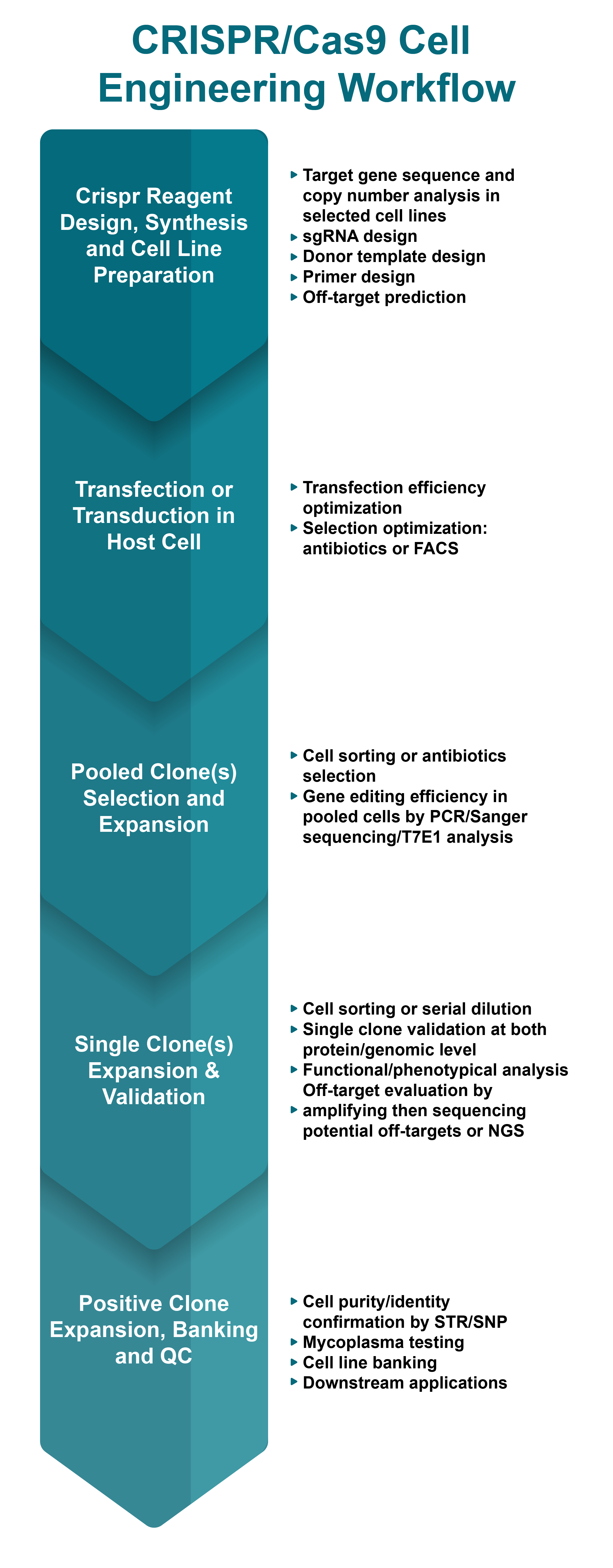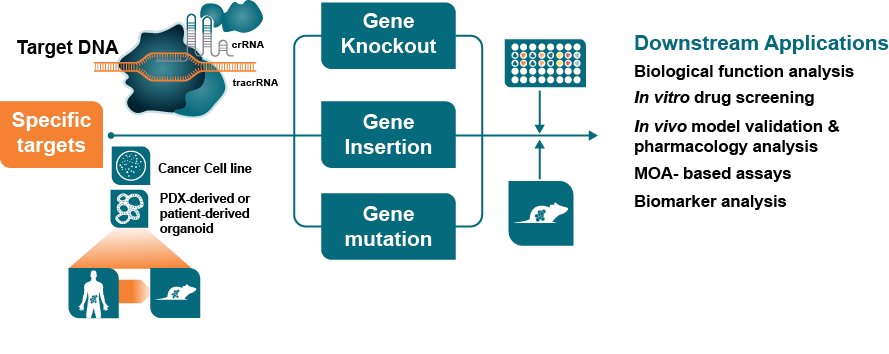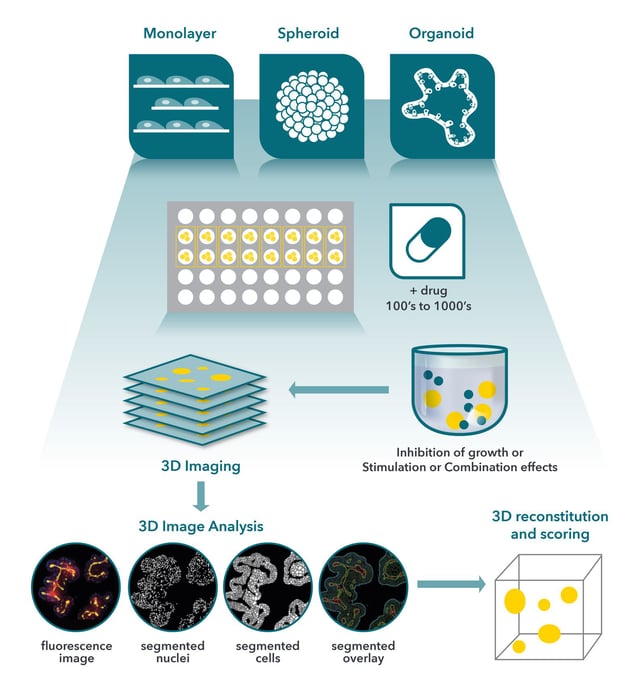CRISPR/Cas9 Gene Editing Platform
The CRISPR/Cas9 system is a cutting-edge gene editing technology that allows for precise and efficient editing of a cell's DNA. This revolutionary technology has made a significant impact in the world of drug discovery with its simplified editing capabilities and minimal off-target effects. Our global CRISPR licenses cover an integrated drug discovery platform for in vitro and in vivo efficacy studies, enabling you to model diseases using stable knockouts/knock-ins and test the efficacy of your drugs with confidence.
These services offer a comprehensive solution for cancer disease modeling. With an extensive collection of cancer cell lines and follow-up studies using tumor organoids, you can be confident in the reliability of your research results.
Features
Customized features for your research needs:
- Extensive Biobank of Models: Choose from hundreds of well characterized cell lines, PDX-derived organoids, and adult stem cell patient derived organoids
- Ready To Use: Off-the-shelf engineered cell line selection for an already available option. Choose a custom build, or bypass initial cell line generation with one of our XenoBase cell lines, complete with characterization and data selection
- In Vivo Validation Services: Use our extensive database of complex 3D organoid models (OrganoidBase) to later validate your compounds in vivo
- Vector Controls: Confirm your downstream results with our robust quality controls
- Commercially Available Cell Lines: Representing multiple tissues, hundreds of cell types, and reporter genes
- Ready to use lentiviruses: Integrating and non-integrating options (allowing requirement for only a biosafety level 2 [BSL-2] facility)
- Endogenous Tags: Luciferase tag options


CRISPR Applications
- Disease modeling: Capture disease relevance and patient population heterogeneity
- Viral host factor identification: Better understand the molecular mechanisms underlying viral entry, replication and pathogenicity
- Predictive biomarker identification: Determine potential biomarkers of therapeutic response with companion diagnostics
- Immunotherapy assessment: Utilize immune checkpoint inhibitor resistant models for compound validation
- Bridging in vitro and in vivo: Ease your study transitions from in vitro studies with vivo validation
- Gene modification for gain- or loss-of-function studies: Run a conclusive experiment that allows you to quickly validate or invalidate your gene target
- Phenotypic assessment: Assess if a phenotype is specific to a particular protein or if a gene target provides the same phenotype in multiple cell types
Study Options
Accelerate your discoveries with our reliable CRISPR solutions. Our milestone-measured process ensures that data is provided at key intervals, overcoming any limitations prior to project advancement. Your project can be fully customizable to ensure seamless delivery.

-
Gene Knockout and/or Gene Knock-in: Introduce your CRISPR components into cells via one of our several transfection methods: Lipofection, electroporation, nucleofection, or lentiviral transfection
-
Single Point Mutations: Screen for mutations that affect protein function, or add tags to endogenous proteins in cell lines. Studies include in vitro drug screenings, mechanism of action, and biological function.
-
Knockdowns: Reduce the expression of your gene with SiRNA and ShRNA transient and stable options
-
Knock-out cell pools: Initiate your test at lower cost with a cell pool. We use CRISPR transfection to express Cas9 and cell pool testing to confirm presence of Cas9
-
Biomarker analysis, genome sequencing, and validation: Conduct standalone in vitro and/or follow up with in vivo model validation services
-
Lead Screening and optimization: Option to use reporter/disease modeling cell lines or cell line derived xenograft models
- Efficacy Testing: Leverage both 2D and 3D models to quantify efficacy across patients and compounds and predict in vivo response. Leverage high content imaging services to produce highly comprehensive morphology readouts
- Ready to Use: Ready-to-transfect predesigned sgRNAs or use custom designed SgRNA and HDR template
Accelerate the drug development process and advance your lead compound to a validated candidate with Crown Bioscience's OmniScreen. This cost-effective, high-throughput screening platform allows for rapid screening of over 500 cancer cell lines to provide key information on cytotoxicity and chemotherapeutic potential. With quarterly revivals of cell lines and positive drug control and cell line revival costs included, you can maximize savings and choose from a variety of focused screening panels, including OmniPanel™, XenoSelect™, RNAseq Panel, and PrimePanel™. Customize your study with flexible template designs and receive bioinformatics support throughout the process. Start your drug screening journey here.
Get deeper insights with a suite of powerful 3D in vitro imaging-based assays that recapitulate and quantify complex human biology in a robust and high-throughput imaging platform. Follow up with assisted high content analysis study options.

